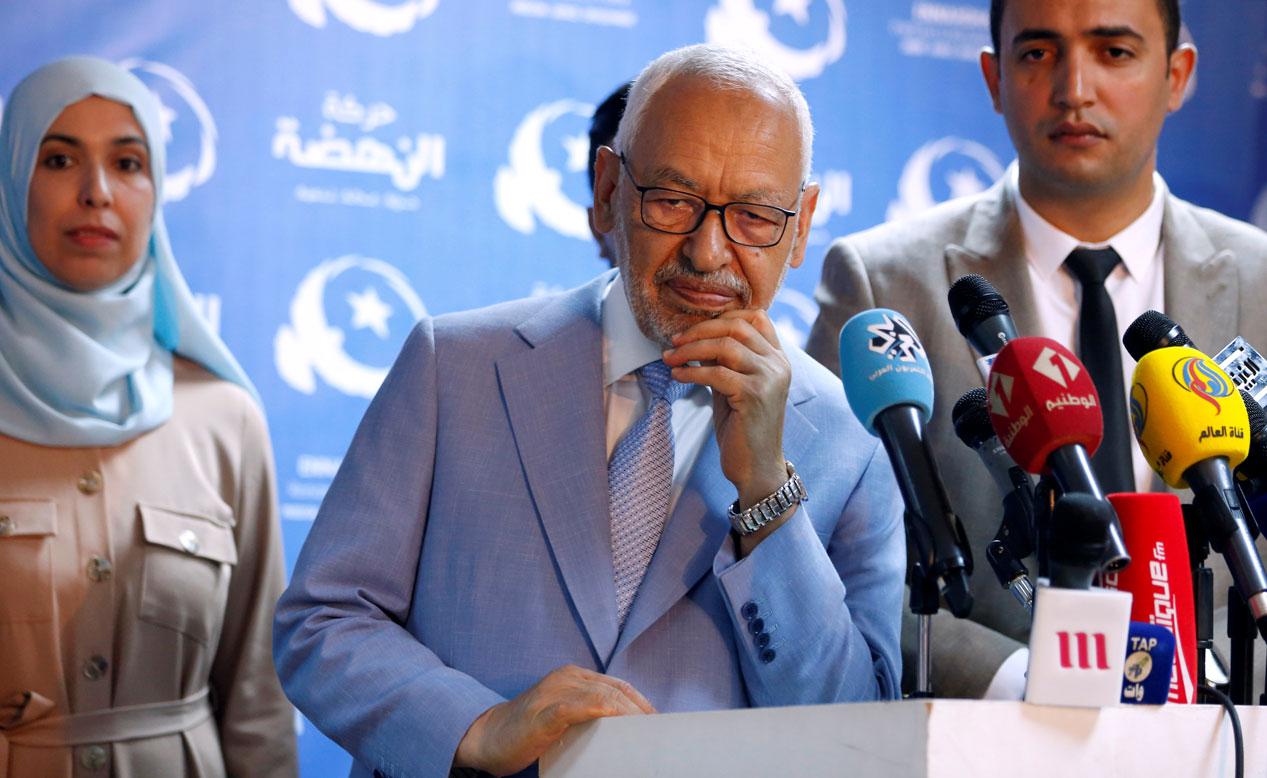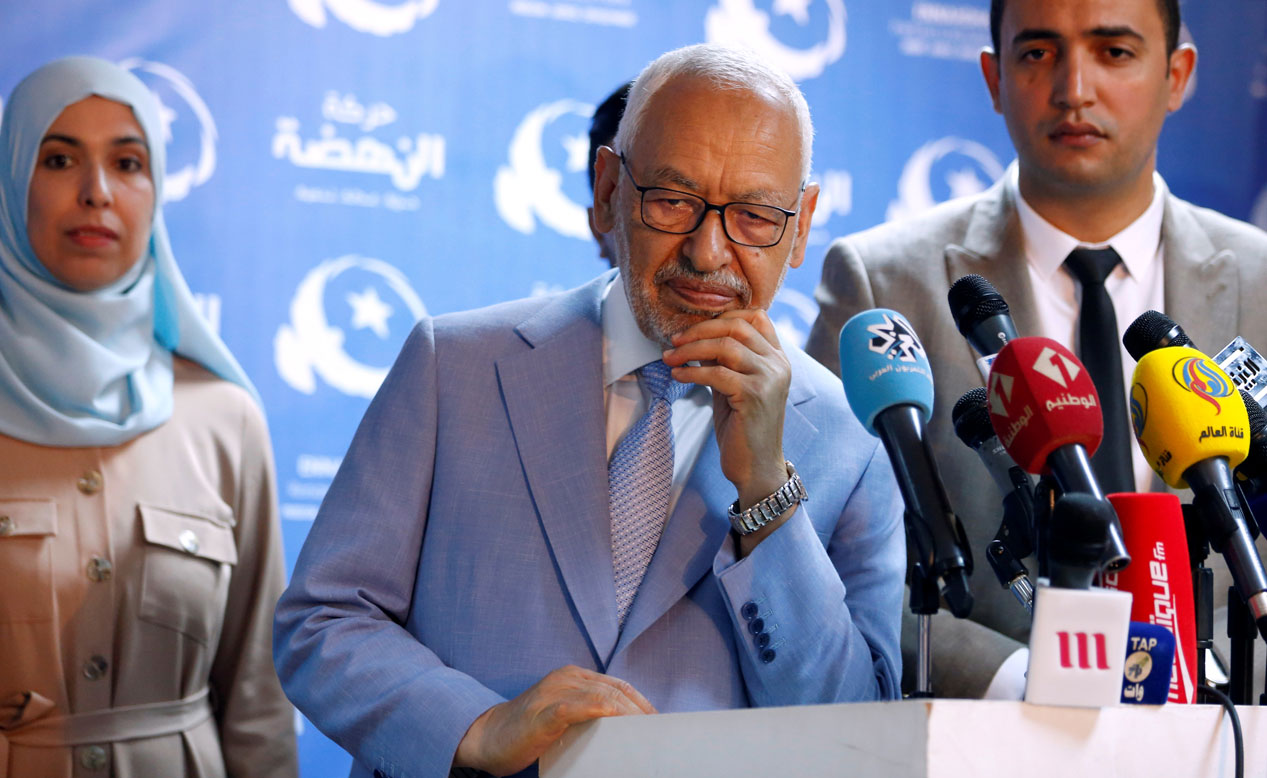Tunisia's Islamist Ennahda pivots from consensus politics
TUNIS - Tunisia's moderate Islamist Ennahda party will seek to govern alone or in partnership with "the forces of the revolution", its leader said on Friday, hinting at an end to five years of consensus rule with the secular establishment.
Rached Ghannouchi was speaking before an Oct. 6 parliamentary election, a poll that follows the first round of a presidential election in which political newcomers defeated all the major party candidates, including that of Ennahda.
Ennahda has backed retired law professor Kais Said in next month's second round presidential run-off against media magnate Nabil Karoui, who is being held in detention on suspicion of tax evasion and money laundering, accusations he denies.
The parliamentary election represents a big test for Tunisia's established parties after Said and Karoui's success, seen as a rejection of governments that have failed to address chronic economic problems.
"Ennahda sees itself as better able to govern and is ready to govern alone or with the forces of the revolution," Ghannouchi told a news conference.
Ennahda is expected to be among the frontrunners in the poll. Ghannouchi comments are the clearest sign yet of a change in the party's position that could see it embrace parties which supported the 2011 revolution which led to the ousting of longtime President Zine El Abidine Ben Ali.
For the past five years, Ennahda has been part of coalition governments with secular parties including Nidaa Tounes, founded by the late president Beji Caid Essebsi, and Prime Minister Youssef Chahed's Long Live Tunisia.
In that time, pro-revolutionary parties have played a marginal role in Tunisian politics.
Ghannouchi did not specify any groups, but the Hirak al-Irdaa party and the Democratic Current party led by Mohamed Abbou are the main parties that supported the revolution.
Tunisia's parliament chooses the prime minister, whose government controls most portfolios. The president can obstruct legislation and has direct control over foreign and defence policy.
Karoui, the detained media magnate, had been a supporter of Nidaa Tounes in the last election in 2014, but has since founded his own party, Heart of Tunisia, focused on alleviating poverty.
Ghannouchi said Ennahda and Karoui's Heart of Tunisia parties would be the main forces in the coming parliament election. Ennahda would not enter coalition with parties suspected of corruption, he added.


